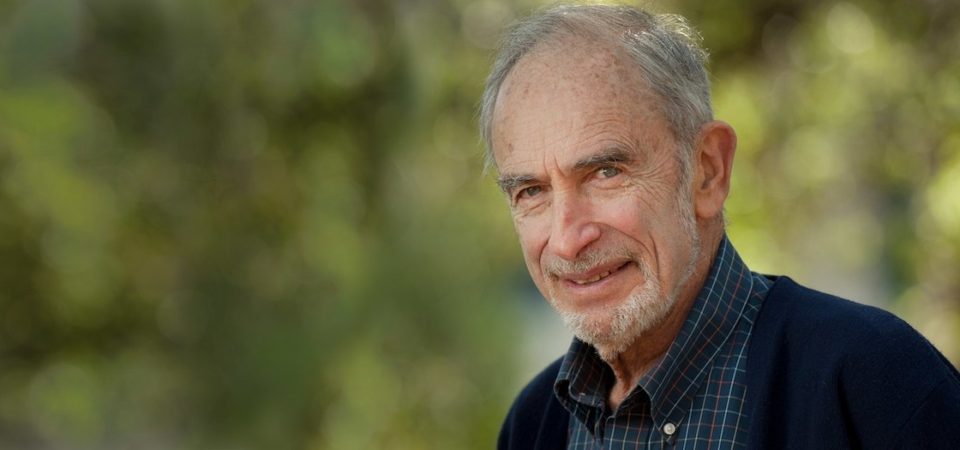Item Link: Access the Resource
Date of Publication: May 9
Year of Publication: 2023
Publication City: Stanford, CA
Publisher: Stanford Woods Institute for the Environment
Event Recap
Renowned Stanford ecologist and population scientist Paul R. Ehrlich recently sat down with Woods Institute Director Chris Field to look back on the former’s career accomplishments – including a 60-year tenure at Stanford – as recounted in Ehrlich’s new memoir: “Life: A Journey Through Science and Politics (link is external).” (Yale University Press, 2023).
Ehrlich, now 90, is one of the founders of the discipline of modern population biology. He has transformed the landscape of science communication, authoring 50 books on topics ranging from butterfly identification to prospects for a sustainable future. He has been recognized with nearly every major environmental prize, including the Blue Planet prize(link is external), the Tyler prize (link is external), and the Crafoord prize (link is external), many received jointly with his partner and collaborator, Anne.
Best known for his 1968 book “The Population Bomb (link is external),” Ehrlich was an early pioneer in alerting the public to the problems of overpopulation. “When I originally got interested in the population issue, too many people thought it was a problem of too many poor people,” Ehrlich explained. This misconception led him to develop the famous formula I=PAT with John Holder, expressing the impact that humans have on the environment as a function of three factors: population (P), affluence (A), and technology (T). When asked to reflect on the current state of population growth, Ehrlich noted that we can be cheered by declining birth rates, particularly because those rates are declining in rich countries where consumption is the highest. But he stressed that as long as population and consumption grow, biodiversity will continue to disappear.
Ehrlich recounted the process behind two of his proudest life achievements – protecting Jasper Ridge Biological Preserve and establishing the Human Biology program at Stanford. Stanford’s Human Biology program was designed to include both social science and biological/biophysical science, and this focus on interdisciplinary collaboration has continued for the university as a whole, heavily influencing the model of the Woods Institute.
Ehrlich did not shy away from giving his thoughts on controversial societal problems. Describing himself as a “born loudmouth,” he believes it is incumbent upon scientists to give their opinion and that scientists play an important role in talking to the media. “You don’t give up your rights to being a citizen because you’re a scientist,” said Ehrlich, “If you’re giving opinions in science you should first of all give what the scientific consensus is, then if you differ from the consensus say why, and then feel free to give your opinions.”
In Ehrlich’s opinion, the worst problem the world faces today is the escalating chance of a full-scale nuclear war. The massive behavioral shift from living as a small group animal to today’s societal structure also has implications that he believes need to be explored in more detail. “Lots of civilizations have disappeared in the past,” he noted, “But for the first time now we have a global civilization. That’s something we should all be thinking about.” Ehrlich’s push for a Millennium Assessment of Human Behavior (link is external) was an effort to encourage civil society to work in a coordinated way on key ethical issues related to the human predicament – a need that he feels still exists today. “We have to get a much more ethical discussion about things like empathy…most people don’t talk about empathy. It’s not in the newspapers, it’s not in the TV.”
When looking back at his long and varied life, what advice would Paul Ehrlich offer to others? Are there things that he would change, if he could do them again? “There are things that I did when we wrote the Population Bomb that I no longer – that I’d give different emphasis to,” Ehrlich noted, “(but) any scientist who’s working in an area where they believe 50 years later exactly what they said 50 years before is in a pretty dull area of science.”
Watch the full conversation below:

